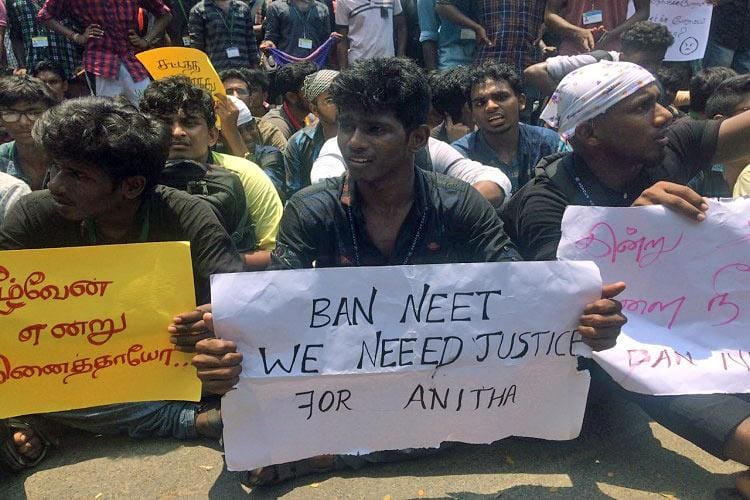
The Justice A K Rajan Committee appointed by the M K Stalin government on the ‘Impact of NEET on Medical Admissions in Tamil Nadu’ has said the qualifying exam will take the state back to pre-independence days and wanted the government to eliminate it at all levels by following the required legal and or legislative procedures.
According to a 165-page report which took into consideration suggestions from 86,342 persons who had communicated their views, NEET has adversely affected the social and economic policies of the state and has had a major impact on the students of rural and urban poor category, who studied in Tamil medium.
The committee recommended an immediate return to the practice of medical admissions through higher secondary scores.
The DMK government formed the committee headed by Justice Rajan on June 10, this year and it was given a month to submit its report. It was made public on Monday.
Following the committee had submitted its report, the Tamil Nadu government passed a Bill to exempt the state from NEET, which awaits the President’s assent. It was in the backdrop of suicides of many medical aspirants who had either failed to crack the exam or had appeared for it.
The committee under the chairmanship of Justice A K Rajan and eight other members said the Elimination of NEET “will ensure social justice and protect all vulnerable student communities from being discriminated in admission to medical education programmes.”
According to the report, while a majority of socially disadvantaged communities such as MBC, SC, SC(A), ST, and DNCs study in government schools, the Backward Class communities comparatively study more in ICSE, CBSE, matriculation, private, government-aided, and Central government schools, while the Forward Caste/ (OC) communities predominantly study in CBSE or ICSE schools.
The committee found that 90% of those who cleared NEET in 2020 in the state had taken coaching, while nearly three-fourths (71%) were repeat applicants.
The NEET had “created a generation of doctors and teaching faculties from mainly the privileged communities — the affluent, the creamy, the urban genre — who are well away from the grass root realities of the diverse social structure,” according to the study.
If NEET continues for a few more years, the rural and urban poor may not be able to join the medical courses.



